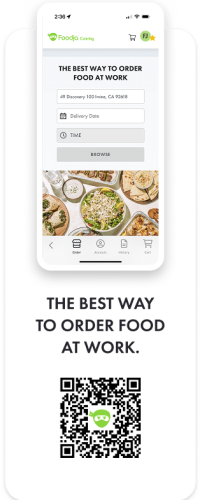Gen Z is quickly becoming an essential contributor to the modern workplace, bringing fresh energy, digital savvy, and high expectations for well-being. Yet, beneath this vibrant exterior, a troubling trend is emerging. Gen Z employees frequently skip lunch breaks at an alarming rate, often using break time to catch up on work or because they perceive themselves as too busy to take a break. This habit is quietly affecting their energy and decreasing both their happiness and productivity.
Why Gen Z Skips Lunch: Guilt and Grind
Despite 50% of Gen Z workers saying lunch is their favorite part of the workday, nearly half (47%) miss lunch at least twice a week, more than any other generation. The reasons are twofold:
- Too Busy to Eat: The modern workday is a whirlwind of last-minute meetings, overflowing inboxes, and constant notifications. Even when Gen Z employees block out time for lunch, 75% say unexpected work demands derail their plans.
- Lunchtime Guilt: Gen Z is four times more likely than Baby Boomers to feel guilty about taking a lunch break. This guilt stems from a culture of relentless productivity, especially amplified by remote work during the pandemic. Many worry that stepping away signals a lack of dedication or could mean missing out on important updates.
The result? Many young professionals end up eating at their desks, multitasking through meals, or skipping lunch altogether, thinking it’s the “safe” career move.
The Hidden Cost: Low Energy, Burnout, and Poor Performance
Skipping lunch isn’t just a minor inconvenience; it has real consequences. When Gen Z workers power through the day without a proper break, they experience:
- Low Energy and Fatigue: Without a midday recharge, energy levels decline, making it harder to focus and perform at one’s best.
- Increased Burnout: Stress and a lack of breaks can lead to dissatisfaction, disengagement, and ultimately burnout—a tough cycle to break.
- Reduced Productivity: Every Gen Z worker surveyed agreed that taking a lunch break has a positive impact on their job performance, yet the pressure to skip it persists.
- Physical Health Risks: Working long hours without breaks can increase the risk of obesity, diabetes, heart disease, and other health issues.
The Solution: Daily Office Meal Delivery
The good news? There’s a simple and effective way to break this cycle and boost both happiness and productivity: implementing a daily office meal delivery program, such as Foodja Cafe.
A daily office meal delivery program is one of the most effective ways for employers to attract, retain, and motivate their teams, helping to win the war for talent and address the productivity challenge simultaneously.
What Gen Z Wants: Personalization, Convenience, and Wellbeing
Gen Z isn’t just looking for any meal—they want options that reflect their values and lifestyles. They value:
- Personalized Choices: Customizable meals that cater to dietary preferences and restrictions make employees feel seen and appreciated.
- Digital Convenience: As digital natives, Gen Z appreciates easy ordering and management through apps like Foodja Cafe, making the meal experience quick and efficient
- Health and Sustainability: Younger workers are especially mindful of nutrition and the environmental impact of their food, seeking employers who share these priorities.
Take Action: Make Lunch a Priority
If you want to unlock Gen Z’s full potential, start with lunch. A daily office meal delivery program isn’t just a perk—it’s a strategic investment in your team’s happiness, health, and productivity. By removing the guilt and hassle from lunch breaks, you empower your Gen Z employees to bring their best selves to work every day.
Ready to boost morale and performance with Foodja Cafe? Make lunch matter. Your Gen Z workforce and your bottom line will thank you.




